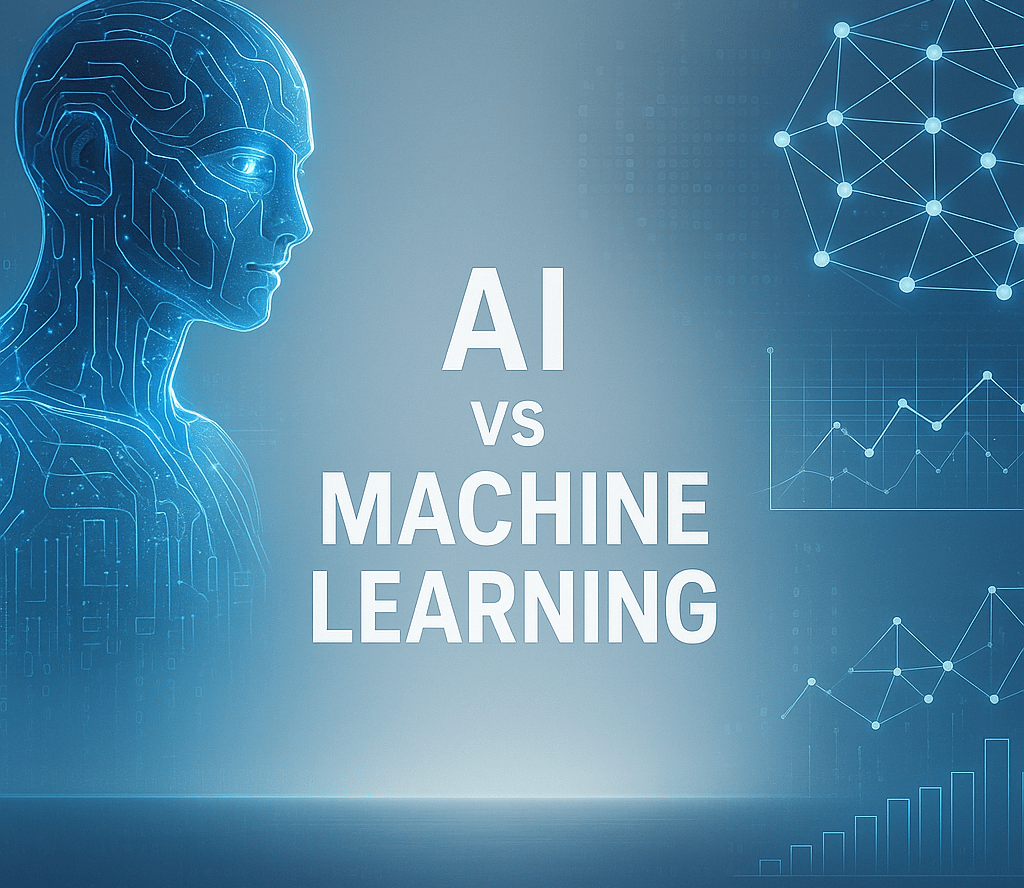AI vs. ML Skills: Best Global Tech Career Paths
AI and ML offer distinct career paths with global demand across industries like healthcare and finance. AI focuses on creating intelligent systems, while ML develops data-driven algorithms, both providing competitive salaries and growth opportunities.
AIARTIFICIAL INTELLIGENCETECHNOLOGYDIGITAL AUTOMATIONSOFTWARE AUTOMATIONTECH INFRASTRUCTUREEDUCATION
Eric Sanders
10/13/20254 min read


Artificial Intelligence vs. Machine Learning: Which Career Path Truly Opens Doors in Today’s Tech World?
In the rapidly evolving arena of technology, artificial intelligence (AI) and machine learning (ML) often appear as two sides of the same coin — yet they offer distinct career paths that can lead to very different professional experiences and opportunities. If you’re standing at the crossroads of choosing between AI and ML, you’re not alone. The allure of lucrative salaries and the promise of job security in a cutting-edge field have many aspiring tech professionals asking: Which path is truly better for career growth and global employability?
Let me be blunt — this isn’t a question with a one-size-fits-all answer. Both AI and ML have cemented themselves as pillars of the digital revolution. But understanding what sets them apart, and how they can shape your future, is critical to making an informed decision, not just chasing trends.
More Connected Than You Think, Yet Fundamentally Different
Artificial intelligence is often portrayed as the broad concept of creating machines or software that can perform tasks requiring human intelligence. Think of AI as the architect, the visionary behind systems that recognize speech, interpret images, understand language, or even play chess at a grandmaster level. It’s about endowing machines with cognitive abilities to mimic or surpass human decision-making.
Machine learning, on the other hand, is a subset — the tactical artisan within AI’s grand workshop. ML focuses specifically on algorithms that enable computers to learn from and make decisions based on data. Instead of explicitly programming every rule, ML systems identify patterns, improving their performance autonomously.
One industry expert puts it succinctly: “AI focuses on creating intelligent systems; ML develops data-driven algorithms.” This distinction is more than academic nitpicking. It fundamentally influences the skill sets you’ll need, the kind of problems you’ll tackle, and the roles you’ll pursue.
Why The Tech Market Is Hungry for Both
Industries worldwide have realized the transformational potential of AI and ML. From healthcare to finance, manufacturing to entertainment, AI and ML are no longer futuristic concepts but operational necessities.
- Healthcare: AI-powered systems assist doctors in diagnostics, predict patient outcomes, and personalize treatment plans. ML algorithms analyze vast datasets from medical records or imaging to uncover patterns invisible to humans.
- Finance: AI-driven fraud detection, risk assessment, and algorithmic trading systems are now commonplace. ML models can adapt to new financial trends, keeping institutions agile in volatile markets.
- Retail: Personalized recommendations, inventory optimization, and customer sentiment analysis harness AI and ML to improve customer experiences and operational efficiency.
Because of this cross-sector integration, the demand for professionals skilled in these domains is booming — and it’s global. For job-seekers, this means opportunities are not constrained by geography. Whether you’re in Bangalore, New York, or Berlin, companies are searching for talent that can help them stay competitive.
Competitive Salaries Reflect the High Stakes
It’s no secret that jobs centered around AI and ML come with attractive pay packages. The global tech market values specialists who can innovate and streamline operations through intelligent systems.
- AI professionals often command salaries that reflect their ability to develop complex architectures capable of reasoning and decision-making.
- ML engineers and data scientists who bring expertise in algorithms, statistical modeling, and data analysis are equally prized.
The takeaway? Both routes offer financially rewarding careers, at least for those who commit to mastering the discipline and continue to adapt alongside the ever-accelerating tech landscape.
Charting Your Own Career Course
If you’re wondering which skill set to focus on, pause and consider your strengths and interests.
- Do you thrive on big-picture problem-solving, working on creating systems that mimic human intelligence in broad ways? AI might be your playground.
- Are you passionate about mathematics, statistics, and deriving insights from massive datasets? Machine learning offers a more specialized but deeply impactful path.
Both fields require a foundation in programming languages like Python, proficiency in data handling, and a strong grasp of mathematical concepts — linear algebra, probability, and calculus, to name a few. Yet, the nuances in applications and daily work can differ significantly.
As one professional advises, “Understanding the difference between AI and ML and recognizing where they intersect can help you carve out a niche that plays to your strengths.”
The Learning Curve and Lifelong Growth
Choosing between AI and ML isn’t about picking the ‘best’ technology but committing to constant learning. Tech professionals often find themselves switching between both fields as products evolve — after all, machine learning fuels many AI applications.
Upskilling through online courses, certifications, real-world projects, and staying updated with research breakthroughs is essential. Additionally, soft skills like communication and problem-solving will differentiate you in a competitive job market that values interdisciplinary collaboration.
What Drives Your Passion?
At the end of the day, your career choice should resonate with your personal motivations and long-term aspirations. Whether it’s the challenge of building intelligent systems that can think like humans, or the thrill of uncovering hidden patterns in data that lead to transformative decisions, your path must align with your intrinsic interests.
The tech world offers a rare chance to be at the frontier of innovation — but it also demands resilience amid rapid change. Keeping curiosity alive and adapting to new tools and frameworks will be your greatest assets.
How will you shape your journey in AI or ML? What kind of impact do you want to have on the industries that don’t just embrace technology but depend on it? As these fields grow beyond buzzwords to become integral threads in our global fabric, your choice may well define not just your career but your contribution to the future.
**Who are you aiming to become in a world increasingly driven by intelligent machines — the architect of artificial intelligence or the artisan of machine learning algorithms?**
Efficiency
Transform your workflows and reclaim your time.
Contact Us
Need A Custom Solutions? Lets connect!
eric.sanders@thedigiadvantagepro.com
772-228-1085
© 2025. All rights reserved.
